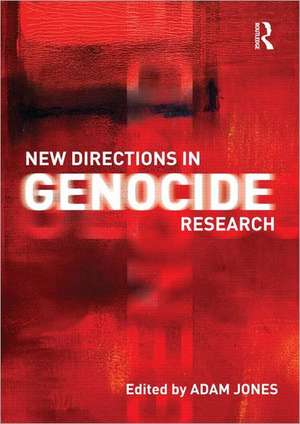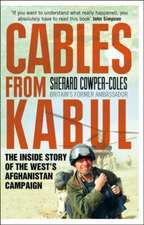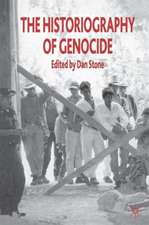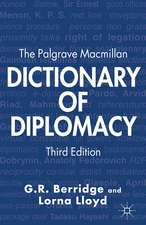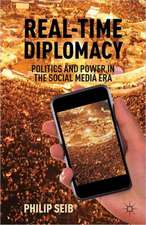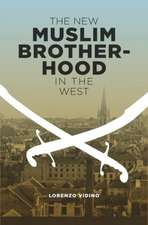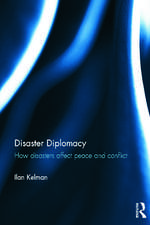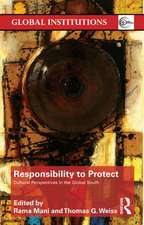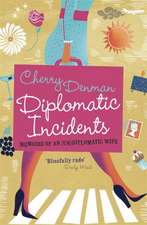New Directions in Genocide Research
Editat de Adam Jonesen Limba Engleză Paperback – 30 noi 2011
The book is divided into three broad sections:
- Section I focuses on broad theories of comparative genocide, covering a number of different perspectives.
- Section II critically reconsiders core themes of genocide studies and unfolds a range of challenging new directions, including cultural genocide, gender and genocide (as it pertains to both women and men), structural violence, and the novel application of remote-sensing technologies to the detection and study of genocide. Section III is case-study focused, seeking to place both canonical and little-known cases of genocide in broader comparative perspective. Cases analyzed include genocide in North America, the Nazi Holocaust, the Armenian genocide, and the Sri Lankan genocide.
| Toate formatele și edițiile | Preț | Express |
|---|---|---|
| Paperback (1) | 343.49 lei 6-8 săpt. | |
| Taylor & Francis – 30 noi 2011 | 343.49 lei 6-8 săpt. | |
| Hardback (1) | 936.36 lei 6-8 săpt. | |
| Taylor & Francis – 30 noi 2011 | 936.36 lei 6-8 săpt. |
Preț: 343.49 lei
Preț vechi: 389.37 lei
-12% Nou
Puncte Express: 515
Preț estimativ în valută:
65.73€ • 67.32$ • 54.68£
65.73€ • 67.32$ • 54.68£
Carte tipărită la comandă
Livrare economică 19 martie-02 aprilie
Preluare comenzi: 021 569.72.76
Specificații
ISBN-13: 9780415495974
ISBN-10: 0415495970
Pagini: 312
Ilustrații: 26 b/w images, 5 tables, 25 halftones and 1 line drawing
Dimensiuni: 174 x 246 x 8 mm
Greutate: 0.7 kg
Ediția:New.
Editura: Taylor & Francis
Colecția Routledge
Locul publicării:Oxford, United Kingdom
ISBN-10: 0415495970
Pagini: 312
Ilustrații: 26 b/w images, 5 tables, 25 halftones and 1 line drawing
Dimensiuni: 174 x 246 x 8 mm
Greutate: 0.7 kg
Ediția:New.
Editura: Taylor & Francis
Colecția Routledge
Locul publicării:Oxford, United Kingdom
Public țintă
Postgraduate and UndergraduateCuprins
Preface: New Direction Adam Jones Part 1: Theories 1. From Definition to Process: The Effects and Roots of Genocide Benjamin Lieberman 2. The Concept of 'Genocidal Social Practices' Daniel Feierstein 3. Genocidal Moralities: A Critique Christopher J. Powell Part 2: Themes 4. The Descruction of Sarajevo's Vijećnica: A Case of Genocidal Cultural Descruction Donna-Lee Frieze 5. Genocidal Masculinity Elisa von Joeden-Forgey 6. Invisible males: A critical Assessment of UN Gender Mainstreaming Policies in the Congolese Gendercide Paula Drumond Rangel Campos 7. Tracking Evidence of Genocide through Environmental Change: Applying Remote Sensing to the Study of Genocide Russell Schimmer 8. Genocide and Structural Violence: Charting the Terrain Adam Jones 9. Moral Bystanders and Mass Violence Ernesto Verdeja Part 3: Cases 10. When 'The World Was Turned Upside Down': California and Oregon's Tolowa Indian Genocide, 1851-1856 Benjamin Madley 11. Fresh Understandings of the Armenian Genocide: Mapping New Terrain with Old Questions Uğur Ümit Üngör 12. Sri Lanka and Genocidal Violence: From Retrospective to Prospective Research Benita Sumita 13. Researching Genocide in Africa: Establishing Ethnological and Historical Context Carol Jean Gallo 14. The Challenge of Social Reconciliation in Rwanda: Identity, Justice and Transformation David J. Simon
Notă biografică
Adam Jones, is Associate Professor of Political Science at the University of British Columbia Okanagan in Kelowna, Canada. His recent books include Genocide: A Comprehensive Introduction (2nd edition, 2010) and Gender Inclusive: Essays on Violence, Men, and Feminist International Relations (2009).
Recenzii
"Fresh, critical, and original, these essays highlight the destructive dimensions of modern governmentality and gender orders so often overlooked by conventional genocide studies. They crackle with insight."
A. Dirk Moses, European University Institute, Florence
'A stimulating and sometimes provocative collection which ranges wide across the burgeoning field of genocide research and showcases valuable new contributions to the field.'
Martin Shaw, Research Professor, Institut Barcelona d'Estudis Internacionals and Sussex University, and Professorial Fellow in International Relations and Human Rights, University of Roehampton, London.
'Genocide studies is a fast-moving, interdisciplinary field. Adam Jones's formidable team of scholars not only provides readers with compelling examples of the insights that are driving the field, but skilfully guides them through the maze of competing interpretations.'
Dan Stone, Royal Holloway, University of London.
"Fresh, critical, and original, these essays highlight the destructive dimensions of modern governmentality and gender orders so often overlooked by conventional genocide studies. They crackle with insight."- A. Dirk Moses, European University Institute, Florence, Italy
"A stimulating and sometimes provocative collection which ranges wide across the burgeoning field of genocide research and showcases valuable new contributions to the field."- Martin Shaw, Research Professor, Institut Barcelona d’Estudis Internacionals and Sussex University, and Professorial Fellow in International Relations and Human Rights, University of Roehampton, London, UK
"Genocide studies is a fast-moving, interdisciplinary field. Adam Jones’s formidable team of scholars not only provides readers with compelling examples of the insights that are driving the field, but skilfully guides them through the maze of competing interpretations." - Dan Stone, Royal Holloway, University of London, UK
"Topics such as the Armenian genocide, mass violence in Sri Lanka and Darfur, and reconciliation in Rwanda are covered in novel ways. The relevance of gender to mass violence is considered in two essays: one theoretical, the other highlighting the neglect of male victims in the Democratic Republic of the Congo. Among the topics least familiar to genocide scholars are the usefulness of remote sensing technology in tracking evidence of genocide through environmental changes, the implications of the deliberate destruction of Muslim cultural sites in Bosnia, and the systematic, catastrophic destruction of the Tolowa Indians in California. Altogether a fine publication." - P. G. Conway, emeritus, SUNY College at Oneonta; CHOICE Review (2012).
A. Dirk Moses, European University Institute, Florence
'A stimulating and sometimes provocative collection which ranges wide across the burgeoning field of genocide research and showcases valuable new contributions to the field.'
Martin Shaw, Research Professor, Institut Barcelona d'Estudis Internacionals and Sussex University, and Professorial Fellow in International Relations and Human Rights, University of Roehampton, London.
'Genocide studies is a fast-moving, interdisciplinary field. Adam Jones's formidable team of scholars not only provides readers with compelling examples of the insights that are driving the field, but skilfully guides them through the maze of competing interpretations.'
Dan Stone, Royal Holloway, University of London.
"Fresh, critical, and original, these essays highlight the destructive dimensions of modern governmentality and gender orders so often overlooked by conventional genocide studies. They crackle with insight."- A. Dirk Moses, European University Institute, Florence, Italy
"A stimulating and sometimes provocative collection which ranges wide across the burgeoning field of genocide research and showcases valuable new contributions to the field."- Martin Shaw, Research Professor, Institut Barcelona d’Estudis Internacionals and Sussex University, and Professorial Fellow in International Relations and Human Rights, University of Roehampton, London, UK
"Genocide studies is a fast-moving, interdisciplinary field. Adam Jones’s formidable team of scholars not only provides readers with compelling examples of the insights that are driving the field, but skilfully guides them through the maze of competing interpretations." - Dan Stone, Royal Holloway, University of London, UK
"Topics such as the Armenian genocide, mass violence in Sri Lanka and Darfur, and reconciliation in Rwanda are covered in novel ways. The relevance of gender to mass violence is considered in two essays: one theoretical, the other highlighting the neglect of male victims in the Democratic Republic of the Congo. Among the topics least familiar to genocide scholars are the usefulness of remote sensing technology in tracking evidence of genocide through environmental changes, the implications of the deliberate destruction of Muslim cultural sites in Bosnia, and the systematic, catastrophic destruction of the Tolowa Indians in California. Altogether a fine publication." - P. G. Conway, emeritus, SUNY College at Oneonta; CHOICE Review (2012).
Descriere
This edited book seeks to capture the range of new approaches, theories and case studies in the field of genocide studies.
